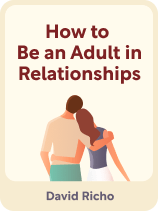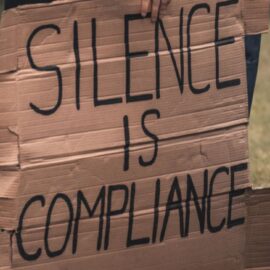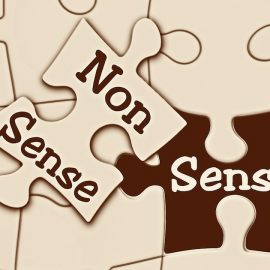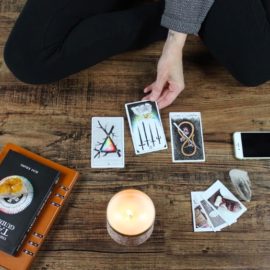

This article is an excerpt from the Shortform book guide to "How to Be an Adult in Relationships" by David Richo. Shortform has the world's best summaries and analyses of books you should be reading.
Like this article? Sign up for a free trial here.
What’s the connection between childhood trauma and relationships in adulthood? How do your parents affect your love life in the future?
Even when you’re out of the house, your parents strongly impact your adult relationships. This is the case especially if you suffered from childhood trauma and have yet to heal those wounds.
Keep reading to learn how childhood trauma affects adult relationships, according to David Richo’s book How to Be an Adult in Relationships.
Childhood Trauma and Relationships
According to Richo, the love you received from your parents as a child set the stage for your adult love life. If your parents always loved you mindfully, then you’re set to become an emotionally mature adult: someone who knows how to give and receive mindful love. On the other hand, if your parents ever made you feel hurt or underloved, you sustained childhood wounds that can hold you back from becoming emotionally mature.
Richo explains that this childhood trauma and relationships are connected by your ability to love mindfully in adulthood: You accept inadequate love, you expect your partner to fill a parental role, and/or you’re afraid of intimacy.
| How Secure Attachment Forms—Or Gets Damaged The ability to love mindfully is more commonly recognized as a secure attachment style: you find it relatively easy to trust, share, and connect with your partner. According to attachment theorists, secure attachment develops when your parents make you feel like they’re reliably there for you by meeting most of your physical and emotional needs. However, secure attachment isn’t all about how your parents loved you—your attachment style can change over time, as you have life experiences that impact the way you relate to people. For example, a toxic relationship can damage your sense of trust in your partner even if you had a secure attachment to your parents. Likewise, a loving partner might help you gain a sense of relationship security that your parents never gave you. |
Consequence #1: You Accept Inadequate Love
First, if your parents gave you inadequate love, you’re conditioned to accept inadequate love in adulthood, too. Richo says that you have physical memories of what love felt like in your body during childhood, and as an adult, you seek out partners who inspire the same feelings.
For example, if your parents often made you feel insecure about their love for you by frequently withdrawing from you emotionally, you’ll seek a partner who makes you feel insecure or forces you to chase or earn their attention. Or, if your parents often made you feel disappointed—for example, by promising to spend time with you but going to the bar instead—you’ll perceive constant disappointment as “normal” in a romantic partnership.
(Shortform note: The tendency to accept inadequate love, or worse, is difficult to overcome, but it doesn’t have to be permanent: While it’s true that people who were abused as children are more likely to be victims of abuse as adults, it’s possible to end this cycle of abuse with the help of a therapist. Therapy can empower you to have healthier relationships going forward by teaching you what healthy relationships look like, improving your self-esteem and self-advocacy skills, and helping you heal from any previous relational trauma.)
Consequence #2: You Want Your Partner to Fill a Parental Role
Second, Richo says that when your childhood cravings for love go unfulfilled, you may grow up to seek out partners who you think will make up for your parents’ shortcomings. For example, if your parents didn’t engage with you enough, you might find yourself attracted to a person who pays you a lot of attention—maybe even too much.
According to Richo, this can lead to codependency—an over-reliance on your partner to fulfill too many of your needs. Codependency can put undue stress on your relationship: Your partner can’t live up to your expectations or meet all your needs—that is your responsibility in adulthood. When your needs inevitably go unfulfilled, you may feel angry and create conflict with your partner.
(Shortform note: According to psychologists, parent-child dynamics between partners are unhealthy because they lead to resentment. If you’re in the parent role, you may feel that your partner is incompetent and take on most of the responsibility in your relationship. As a result, you might come to resent your partner for not doing their fair share. If you’re in the child role, you inevitably give up some of your autonomy—for example, if your partner buys all your clothes, you won’t have as much of a say in what you wear. As a result, you might come to resent your partner for being too controlling.)
Consequence #3: You’re Afraid of Intimacy
Third, a lack of mindful love in your childhood can leave you feeling fearful of intimacy in adulthood. Since your parents’ love caused you pain, you might be afraid that romantic love will have the same effect. Richo explains that a fear of intimacy usually takes one of two forms: attachment or distance:
- You might get too attached to your partner if your parents were absent in major ways during your childhood—even if it was for a necessary reason, like having to take frequent business trips. According to Richo, overattachment makes you cling to your partner because you’re afraid you can’t handle the potential end of the relationship.
- You might be too distant from your partner if your parents mistreated or abused you—you might now associate intimacy with being dominated, hurt, or exploited. As a result, you might be afraid that the relationship will limit your freedom and security, and you might pull away from your partner.
Your Attachment Style Determines How You Cope With Intimacy Fears
Recall that secure attachment is what enables you to feel reliably safe and connected enough for intimate relationships. If you don’t have a secure attachment style, then you have an insecure attachment style: You’re fearful of intimacy because your previous relationships taught you that you can’t trust your loved ones to reliably be there for you.
Insecure attachment is fairly common, but it can be difficult to recognize because it comes in different forms. Psychologists generally suggest that there are three insecure attachment styles, which cope with the fear of intimacy in different ways.
- If you distance yourself from your partner, you likely have an avoidant attachment style. You may feel uncomfortable being emotionally vulnerable, need extra personal space, and prioritize your independence over a committed relationship.
- If you get too attached to your partner, you likely have an ambivalent attachment style. You may struggle with feelings of insecurity and jealousy, have a hard time maintaining healthy relationship boundaries, and prioritize your relationship to the point of neglecting other major parts of your life.
- If you often find yourself sabotaging or ending your relationships prematurely, you may have a disorganized attachment style. As a result of childhood trauma or abuse, people with a disorganized attachment style crave yet repel intimacy because they’re deeply afraid that intimacy inevitably leads to serious harm. They may pursue relationships but behave erratically and withdraw to avoid the possibility of getting hurt.

———End of Preview———
Like what you just read? Read the rest of the world's best book summary and analysis of David Richo's "How to Be an Adult in Relationships" at Shortform.
Here's what you'll find in our full How to Be an Adult in Relationships summary:
- The secret to a long-lasting, loving relationship
- How to overcome emotional wounds that hold you back from loving
- How the Buddhist concept of mindful loving can create a better world






